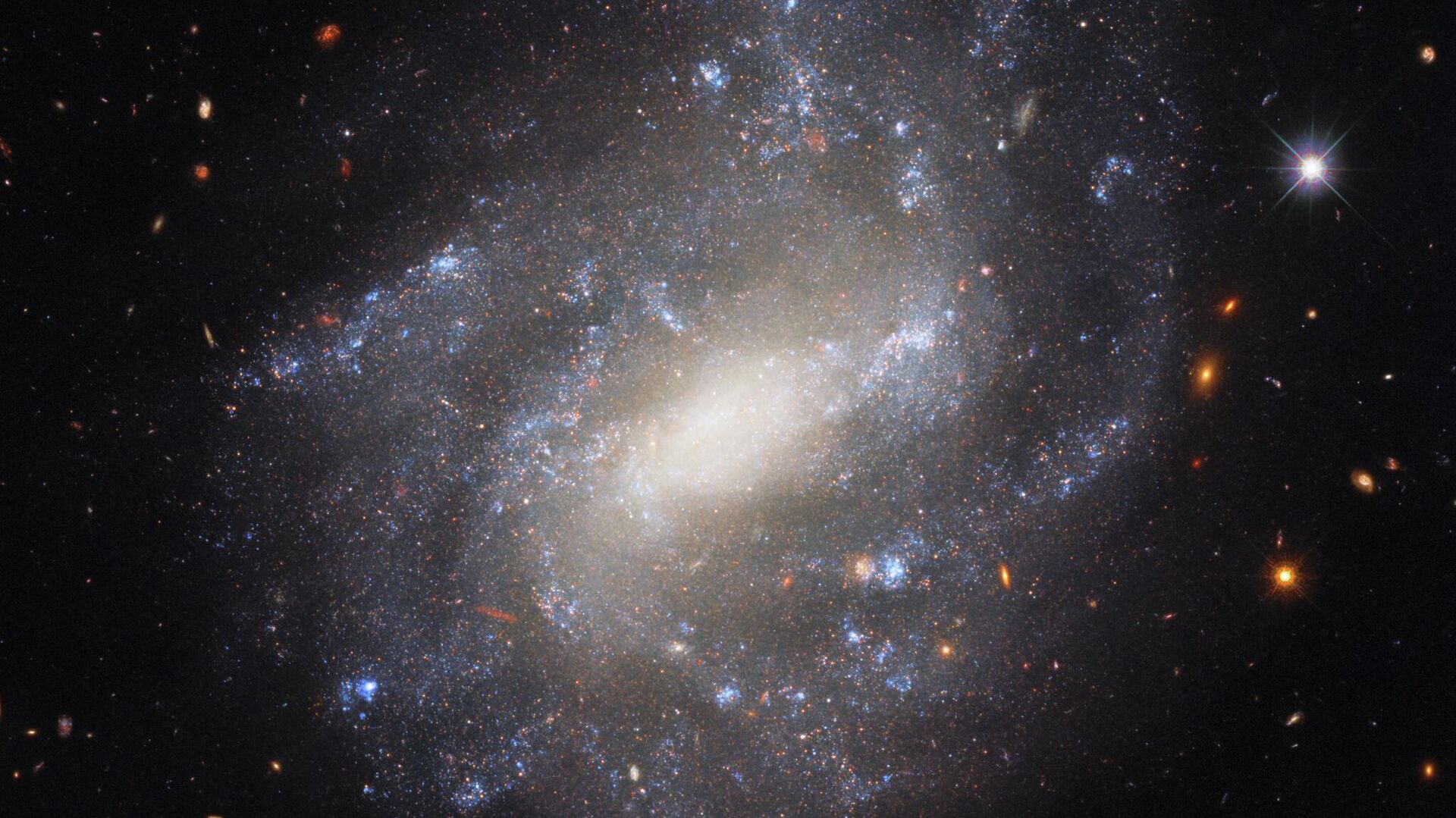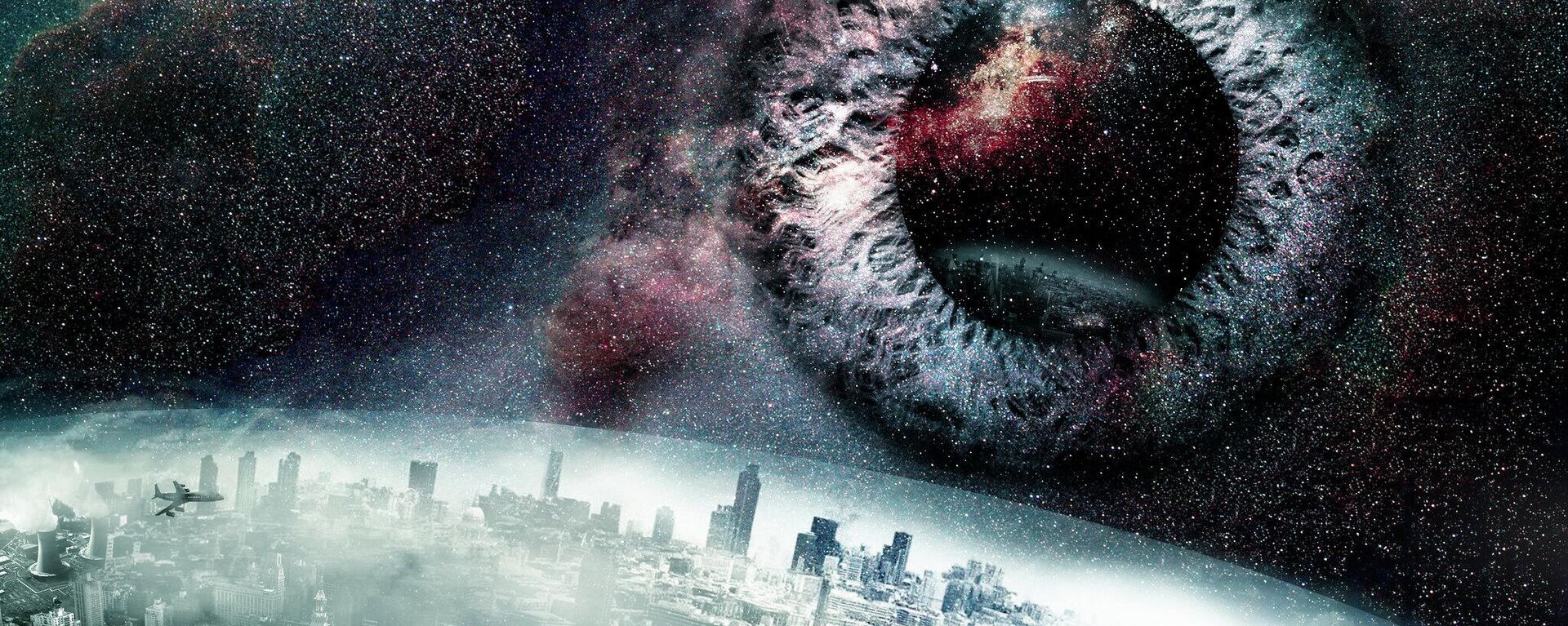https://sputniknews.in/20230609/is-space-travel-messing-up-astronauts-brains-2408522.html
Is Space Travel Messing Up Astronauts' Brains?
Is Space Travel Messing Up Astronauts' Brains?
Sputnik India
A new study funded by NASA unravels what happens to the human brain when astronauts travel to zero gravity or space.
2023-06-09T17:57+0530
2023-06-09T17:57+0530
2023-06-09T17:57+0530
space satellite
space industry
nasa
international space station (iss)
science & tech
indian space research organisation (isro)
space exploration
space rocket
https://cdn1.img.sputniknews.in/img/07e7/01/1b/662791_0:581:2047:1732_1920x0_80_0_0_9680273323ca0cf311071445408525d0.jpg
A new study funded by NASA unravels what happens to the human brain when astronauts travel to zero gravity or space.The study also says that most of the expansion happens in the first six months.The cerebrospinal fluid protects the brain while removing waste. "When astronauts go to space, fluids within the body shift toward the head and push the brain higher against the skull, causing expansion of the ventricles," the report reads.The researchers concluded after studying MRI scan data from a sample of 30 astronauts before flying to space and after returning to Earth. The mission duration varied from approximately two weeks to one year, and previous spaceflight experience (0 to 3 previous missions), and time since previous flight (roughly 1 to 9 years).The crew members should wait at least three years to recover before returning to space.
https://sputniknews.in/20230510/transcending-boundaries-humans-may-soon-hear-response-from-intelligent-alien-life-1891740.html
international space station (iss)
Sputnik India
feedback.hindi@sputniknews.com
+74956456601
MIA „Rossiya Segodnya“
2023
Deexa Khanduri
https://cdn1.img.sputniknews.in/img/07e6/0c/13/138923_52:0:533:481_100x100_80_0_0_cadf23d341691fc65ff2b22fd1afe584.jpg
Deexa Khanduri
https://cdn1.img.sputniknews.in/img/07e6/0c/13/138923_52:0:533:481_100x100_80_0_0_cadf23d341691fc65ff2b22fd1afe584.jpg
News
en_IN
Sputnik India
feedback.hindi@sputniknews.com
+74956456601
MIA „Rossiya Segodnya“
Sputnik India
feedback.hindi@sputniknews.com
+74956456601
MIA „Rossiya Segodnya“
Deexa Khanduri
https://cdn1.img.sputniknews.in/img/07e6/0c/13/138923_52:0:533:481_100x100_80_0_0_cadf23d341691fc65ff2b22fd1afe584.jpg
zero gravity, spaceflight, spacestations, what happen to brain, brain in space, or space, cerebral ventricles, middle of the brain, cerebrospinal fluid, rachael seidler, nature journal
zero gravity, spaceflight, spacestations, what happen to brain, brain in space, or space, cerebral ventricles, middle of the brain, cerebrospinal fluid, rachael seidler, nature journal
Is Space Travel Messing Up Astronauts' Brains?
Deexa Khanduri
Sputnik correspondent
We have been sending human beings to space for decades, hoping to unravel its mysteries. However, new findings claim that space is expanding our minds in ways we may not have anticipated.
A new study funded by NASA unravels what happens to the human brain when astronauts travel to zero gravity or space.
Research published in a peer review journal on Thursday claimed that astronauts who travelled on the International Space Station (ISS) or NASA space shuttle on missions lasting six months experienced significant expansion of the cerebral ventricles, spaces in the middle of the brain containing cerebrospinal fluid.
The study also says that most of the expansion happens in the first six months.
The cerebrospinal fluid protects the brain while removing waste. "When astronauts go to space, fluids within the body shift toward the head and push the brain higher against the skull, causing expansion of the ventricles," the report reads.
The researchers concluded after studying MRI scan data from a sample of 30 astronauts before flying to space and
after returning to Earth. The mission duration varied from approximately two weeks to one year, and previous spaceflight experience (0 to 3 previous missions), and time since previous flight (roughly 1 to 9 years).
The crew members should wait at least three years to recover before returning to space.
"We don't yet know for sure what the long-term consequences of this are on the health and behavioral health of
space travelers, so allowing the brain time to recover seems like a good idea," said Rachael Seidler, a professor of applied physiology and kinesiology at the University of Florida and an author of the study.



